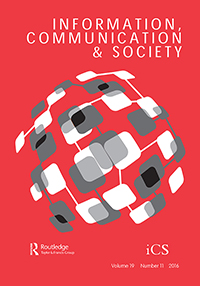Martin Wolske (University of Illinois at Urbana-Champaign) and I have a new paper in The Journal of Community Informatics. The paper is called “Critical Questions for Community Informatics in Practice from an Ethical Perspective.”
Here’s a brief description from the paper:
Collaboratively developed through three years of conference workshops, this set of guiding critical questions seeks to further promote ethical practice in CI…These guiding critical questions affirm the need to state social justice principles more explicitly in community informatics. Unequal power relations will always be a factor and CI practice can benefit from guidelines to ensure these relationships are more equitable.
Many people from around the world contributed to the development of this framework over three years of Community Informatics Research Network conferences in Prato, Italy. I believe the framework is quite relevant and applicable beyond the scope of this topic. It was a real honor to work with Martin Wolske and many other colleagues on this project. I hope it will be useful and also elaborated upon.


